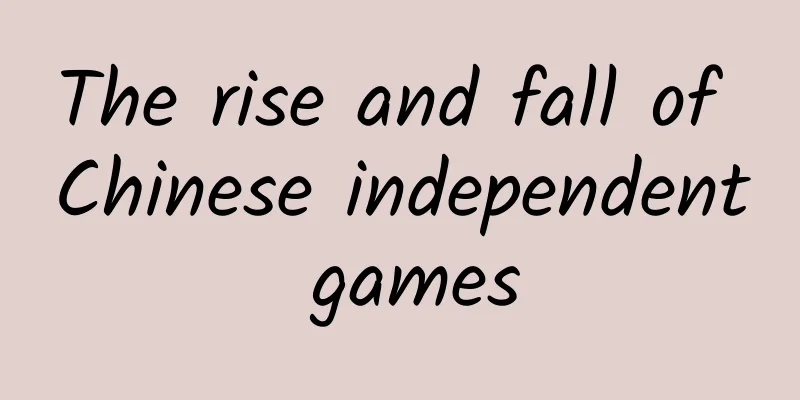What exactly did the addictive Tik Tok short videos do to you?

|
The world of short videos has never been peaceful, but no one expected that the popular dance led by big brother Kuaishou last year would become the seaweed dance of Douyin after the Spring Festival. The speed of change is simply astonishing! As a rising star, one cannot help but marvel at the charm of Tik Tok. Many people are addicted to it and some serious enthusiasts even enjoy watching it all night long and still feel unsatisfied. In order to resist the temptation of Douyin, some people directly delete Douyin immediately, thus leaving the group of Douyin users and returning to their true selves. The abnormal behaviors of the above users make people wonder, how did this short video achieve this level? After thinking about it, I found that in addition to Tik Tok, other game products that people often use, such as Moments , Weibo, Zhihu, and Honor of Kings , all have the same characteristics, that is, they have addictive mechanisms, and the routines hidden in them are the same, all of which use people's likes and dislikes to achieve the purpose of manipulation. In today's article, the editor will take you to dig into how Douyin seduces you step by step and makes you unable to extricate yourself, how you lose control, and how we can find an operation plan that is more suitable for users based on this logic. 01. How did you become addicted?In fact, any addictive product only needs to have three points to make people addicted. So, what are those three points? 1. Action : What triggers people to take action is usually dominated by the need for positive experience. For example, some people may be attracted by Douyin when they see commercials shot by their favorite idol stars while walking on the street, or they may see cool Douyin videos on WeChat Moments, Weibo and other places, or they may be strongly recommended by their friends. The motivations behind the behaviors all come from the inner pursuit of happiness and the inspiration caused by group identity. 2. Variable rewards : When you download Tik Tok with anticipation, you will directly land on the recommended video page after opening it. These popular videos that have been screened are fun, dazzling, and cool, which will immediately catch your attention and satisfy your expectations. OK, now you’re halfway to success. After you get your first reward, hey, it feels really good, just keep going. Pay attention, pay attention to the blackboard here, highlight the key points! The rewards at this time are variable and unpredictable. You don’t know if the next video will be more interesting, which keeps you looking forward to it. This will attract you to discover more interesting, beautiful and cool videos like chasing prey, making you unable to stop at all. If the reward is predictable, the enthusiasm will not last. It's like you know what the magic trick will do every time, but it will become boring after watching it a few times, right? Probabilistic rewards are like treasures, attracting you to keep digging. You don’t know whether there are good things inside unless you open it. Sometimes it will be a good thing, sometimes it will be a bad thing. When you find out it is a bad thing, you will expect the next treasure to be a good thing, and when you find out it is a good thing, you will expect the next one to be a good thing again. This way you will continue to act more frequently, and eventually become addicted to it. 3. Commitment : Action and rewards are not enough to make you addicted. This last step is crucial. Some people collapse before they reach this step. Users who have completed this step are usually difficult to lose, so this step is investment. After you enjoy the rewards, the platform will lure you to invest something, which may be forwarding videos, commenting, or shooting videos, entering friend relationships, filling in identity information, etc. In order to prevent your actions from being hindered, these label buttons and action processes are designed to be extremely simple and obvious, thereby improving the efficiency of action. The reciprocity principle kicks in at this time. As a survival skill formed since human evolution, you will be very happy to invest something in return for the platform. The deeper reason is that you want to imitate the behavior of others in order to obtain social rewards (likes, comments, attention). And when you slowly get involved in it, you will change your attitude. You have invested so much time and energy in it that you can no longer think that this platform is low and boring. Otherwise, it will conflict with your own actions. In order to avoid cognitive dissonance, you will continue to maintain the same behavioral attitude as in the past. 4. After completing the whole routine, the changing rewards will continue to pull you back, and you expect someone to like, comment, or follow you (social rewards) . You can't help but open it to take a look, and if you find that many people like, comment on, and follow you, you will have a sense of accomplishment (self-reward) . At this point, the achievements you have made on the platform give you more reasons to stay. And if there are no waves for the time being, you will stay in the recommended videos on the homepage looking for prey rewards and keep swiping. In order to better bring you back, the platform has a trick up its sleeve at the beginning, which is to allow you to send notifications. Then notifications about who has posted a video keep ringing on your phone’s notification bar, and to satisfy your curiosity, you continue to open the app, and then you keep refreshing it. After repeating this many times, it is no longer your positive psychology that triggers your action, but your negative emotions. When you feel bored and annoyed, in order to escape the negative experience, you will unconsciously open TikTok again to look for rewards. These negative emotions are simply everywhere. At this time, congratulations, you have successfully become addicted. 02.Why can't you control yourself?I believe that many people, after becoming addicted to certain products, have gone through countless inner struggles, saying that they will not play anymore, but in the end they still can't help but play. Why can’t I control it? What exactly controls the brain's willpower that causes such contradictory behaviors and attitudes, and ultimately makes one feel extremely anxious. In fact, the brain is controlled by two systems, namely System 1 planners and System 2 doers. System 1: Planner , forward-looking, mainly concerned with the future and has good plans, a rational brain. For example, you decide to get up early tomorrow, read a book a month, achieve your weight loss plan this year, and work hard to get into a good university. These are all planned by System 1 in the long term. System 2: The doer , is a reckless guy who lives in the present and controls our desires, emotions, etc. For example, I didn’t want to get up early as planned because I missed the warmth of the bed. Reading a book in a month is so tiring, it’s easier to watch popular TV series and Tik Tok. This year’s weight loss plan has long been melted by the delicious food on my tongue. What a good university? Does not exist. This is like the relationship between bosses and employees in some companies. The bosses talk about goals and plans every day, while the employees just hope not to have to work overtime tonight and can get a salary increase this month. This leads to eternal conflict between some bosses and employees. Addictive products manipulate System 2 actors. When emptiness, boredom, and annoyance come, the actors will do everything they can to eliminate negative experiences and achieve inner pleasure. This is like why you always want to smoke a cigarette when you are bored, and always want to take out your phone to check your Moments, TikTok, Zhihu, etc., and these behaviors often happen unconsciously, and when you come to your senses, you realize that you are playing again. 03. ConclusionAddictive products are not all bad for people. It mainly depends on how they are used. Just like computers are used by some people to watch popular TV series and play games. But, for some people, it might be the guy who eats. For operators who use short videos as one of their money-making tools , this article may provide them with different operational ideas. It depends on how everyone views this matter. Source: |
>>: Analysis of Douyin AARRR Traffic Funnel Model
Recommend
3 dead! Limited space again!
On November 26, Tianjin Bomai Offshore Engineerin...
QR code promotion, 6 invalid forms to avoid
When doing new media promotion , many operators d...
How do advertisers choose “KOL” to promote their products?
Today, the self-media industry is developing at a...
B station product analysis report!
The article provides a brief analysis of Bilibili...
Android 12 now has a device search API for third-party launchers
A month after Google released the second develope...
Why do we pay so much attention to "rare diseases"? Treatment technologies for more than 7,000 rare diseases accelerate innovation in life sciences
Introduction According to statistics, there are m...
Sun Jiadong, Lu Yuanjiu...their names shine in the starry sky
This is Sun Jiadong, winner of the Medal of the R...
WeChat dedicated input method is here
According to the latest news, WeChat input method...
Teachers' Day copywriting is out, give your knees
Teachers' Day is just a few days away. Are yo...
On Okamoto's marketing tactics: The whole world is dirty, but I am clean
In social marketing , going against the grain is ...
Alipay launches new anti-fraud function: identifies transaction fraud risk and notifies the guardian
[[258298]] In the era of mobile payment, the role...
Can blacklisting Taobao help bring manufacturing back to the United States?
In its quest to attract manufacturing back to Chi...
31 provinces and municipalities added 3 imported cases from abroad, and Beijing had no new cases for 8 consecutive days
From 0:00 to 24:00 on July 13, 31 provinces (auto...
China's chip manufacturing has taken a big step forward! The Chinese Academy of Sciences has built the most powerful ultraviolet super-resolution lithography machine
[[251267]] my country has made new breakthroughs ...
360 Cloud Disk is retired and other survivors will play the Hunger Games
"Winter is here, can spring be far behind?&q...









